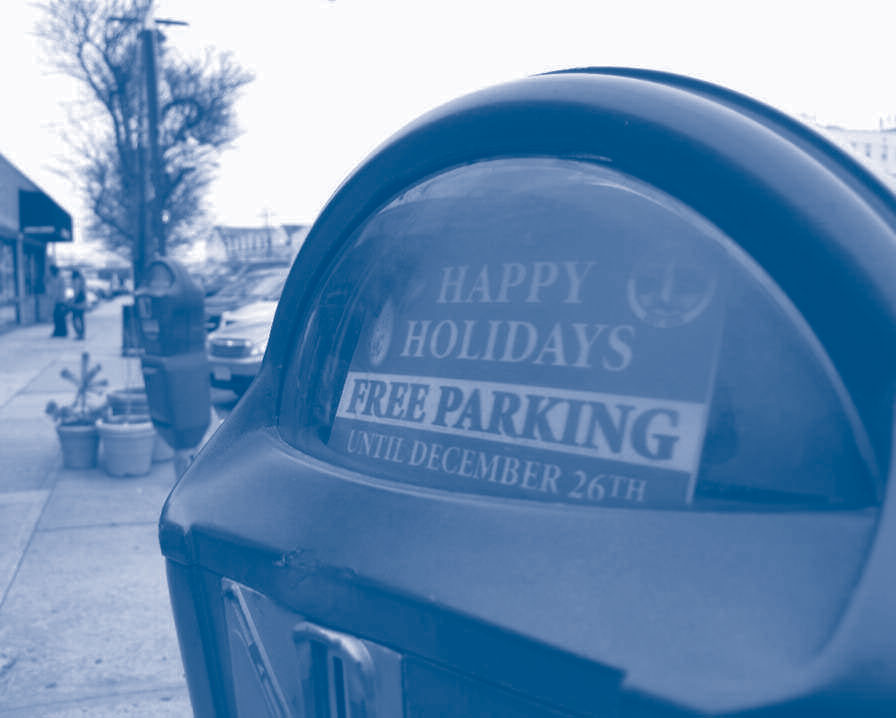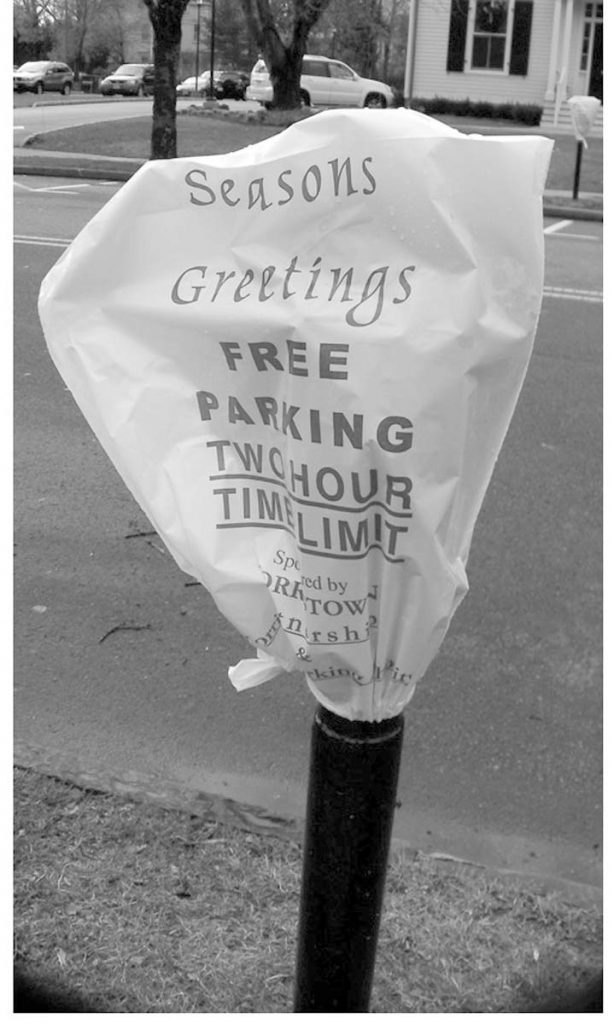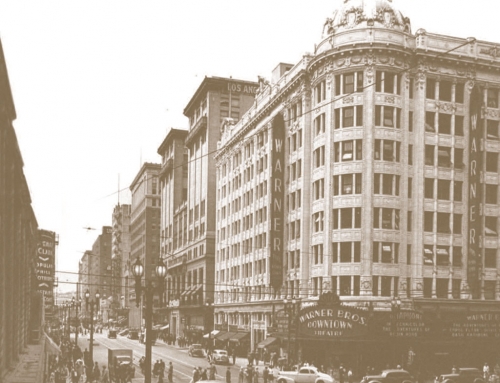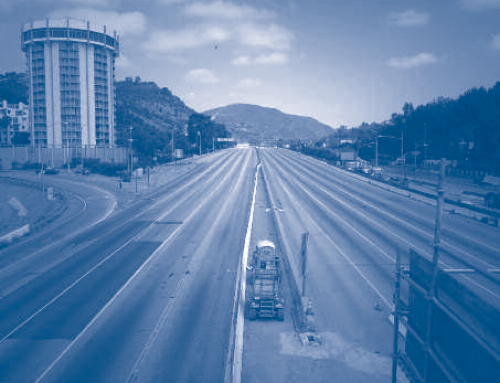In December 2010, the City Council of Berkeley, California, voted to give what they thought was a generous Christmas gift to the city’s merchants: free parking at all parking meters in the city. “There are a couple of messages going out here,” said councilmember Laurie Capitelli. “One is that we are inviting customers to our commercial districts. Two, we’re sending a message to our small businesses, saying ‘we are hearing your concerns, and we do want to respond to them.’”
The Downtown Berkeley Association cheerfully informed its members, “There will be no pay and no time limits! And, remember that this is a gift to our customers. Please tell your employees to leave this space available for customers.” Berkeley’s city manager estimated that the city would lose between $20,000 and $50,000 in meter and ticket revenue for each day of the meter holiday.
Parking holidays are well-intended, but the gift is more like a lump of coal for businesses that depend on parking turnover.
Merchants may thank elected officials for free parking at the time of peak demand, but open spaces will become even harder to find. Drivers congest traffic and pollute the air while searching for curb spaces, and the lucky ones who find a space will occupy it longer than if they were paying to park. Parking holidays are well-intended, but the gift is more like a lump of coal for businesses that depend on parking turnover.
Creating a Commons Problem at Christmas
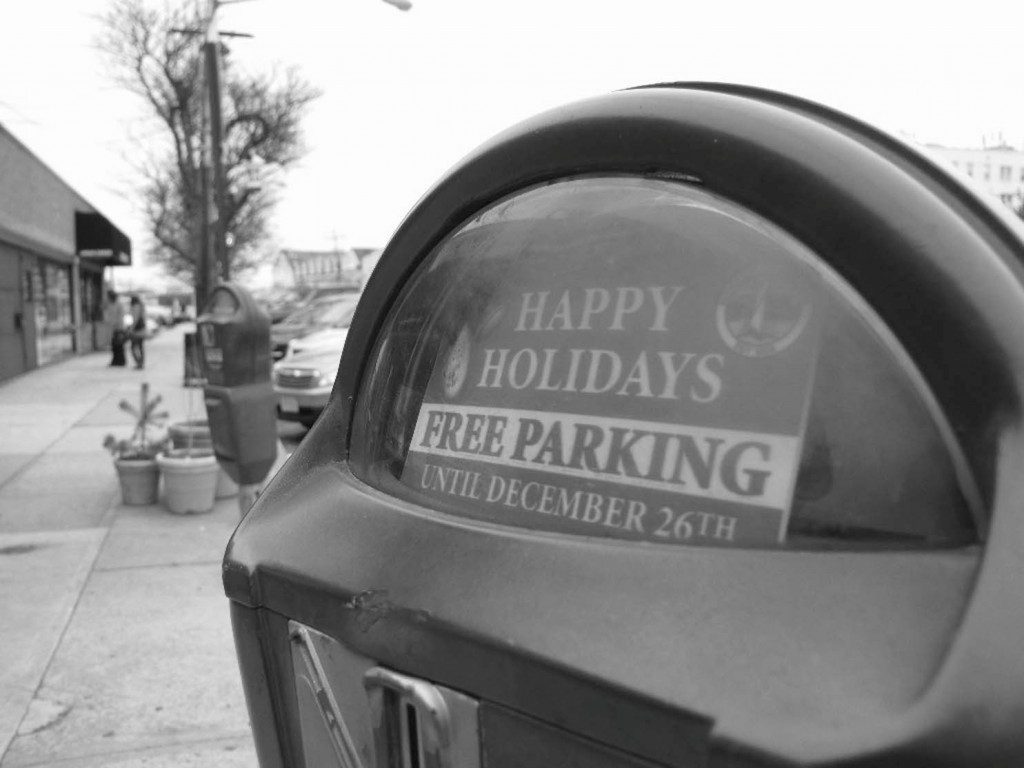 Free curb parking creates a classic commons problem—no one owns it, and everyone can use it. In his famous essay, “The Tragedy of the Commons,” Garrett Hardin used free curb parking at Christmas to illustrate the problem:
Free curb parking creates a classic commons problem—no one owns it, and everyone can use it. In his famous essay, “The Tragedy of the Commons,” Garrett Hardin used free curb parking at Christmas to illustrate the problem:
During the Christmas shopping season the parking meters downtown were covered with plastic bags that bore tags reading: “Do not open until after Christmas. Free parking courtesy of the mayor and city council.” In other words, facing the prospect of an increased demand for already scarce space, the city fathers reinstituted the system of the commons.
Hardin also used parking meters as an example of social arrangements that encourage responsible behavior:
To keep downtown shoppers temperate in their use of parking space we introduce parking meters for short periods, and traffic fines for longer ones. We need not actually forbid a citizen to park as long as he wants to; we need merely make it increasingly expensive for him to do so. Not prohibition, but carefully biased options are what we offer him.
Despite the need to manage parking demand during the peak shopping season, many cities continue to wrap their parking meters in December, giving motorists a commons problem for Christmas. Consider the program in Bellingham, Washington:
This year, for the two weeks before Christmas the city will offer all-day free parking.… To help shoppers park close to businesses and keep spaces available, the city is asking that people still observe the time limits at meters. Shoppers planning to be downtown for more than a couple of hours are encouraged to park on the ground floor of the Parkade.
Meter holidays invite commuters to park free all day in metered spaces, leaving less parking for customers.
Free curb parking will not “keep spaces available,” and few motorists will comply with the request to “still observe the time limits at meters.” Meter holidays invite commuters to park free all day in metered spaces, leaving less parking for customers.
Although well-meant, meter holidays create a shortage of curb parking at the busiest time of year, making it more difficult for shoppers to find a curb space and exacerbating traffic congestion. Consider this report of what happened when Durango, Colorado, bagged its parking meters at Christmas time:
As sleigh bells ring and the countdown to Christmas comes to a close, the city has been promoting free downtown parking for holiday shoppers.… But there is just one small problem: There’s nowhere left to park.… Cuenca said he has noticed some motorists driving dangerously, pulling aggressive maneuvers to secure their spot before spreading commerce and holiday cheer. “It’s created a frantic frenzy just to find a spot.”
Harnessing the Seasonal Urge to Help Mankind
Rather than provide free parking, cities could instead post signs during the Christmas season saying, “The city will donate all parking meter revenue in December to pay for food and shelter for the city’s homeless population.” Shoppers might like this more than a parking holiday that makes it harder to find a curb space. They might also feel better about paying to park downtown if they know their money is going to help the homeless. Parking charity rather than meter holidays will help those in greatest need, prevent parking shortages, and aid businesses that depend on curb parking. Wanting free parking for Christmas will begin to look quite greedy.
Parking charity can extend beyond the Christmas season. Many stores and malls reserve the most convenient parking spaces for disabled access, but able-bodied drivers sometimes park in them. To deal with this problem, and to provide spaces for all drivers who want quick access, a store can install parking meters in a few spaces adjacent to the disabled spaces, while keeping all other spaces in the lot free. To justify this policy, the store can place a sign on every meter saying that all the revenue will be donated to charity.
The prices for the charity meters can be set at a level that will keep one or two spaces open, allowing able-bodied drivers to park in convenient spots without harming disabled shoppers. Able-bodied drivers who do park in disabled spaces will look even more contemptible if they can instead donate to charity at a nearby meter.
Some drivers may be happy to pay for convenient parking when they really want it. Suppose the charity meters charge $1 an hour. A driver who is in a hurry to make a quick purchase and who parks for only 15 minutes might not mind donating 25¢ to charity to park near the front door, while a driver who parks for four hours can park farther away and save $4. A higher turnover of cars in the charity spaces will also benefit the store because customers who park in them will probably spend more per minute while they are in the store. And customers who walk past the charity meters might applaud the store’s altruistic parking policy.
Only a Grinch would demand free parking for Christmas.
If cities donate their meter money to charity during the Christmas season, and if stores place a few charity meters in their most convenient spots, drivers will begin to see that charging for parking can do some good for the world. Only a Grinch would demand free parking for Christmas.
Bayshore Town Center Change for Charity Foundation
Easton Town Center Change for Charity Meter Foundation
Garrett Hardin. 1968. “The Tragedy of the Commons,” Science, 162(3859): 1243–1248.
Eric Klein. 2010. “Parking Holiday Approved for Christmas Shopping,” Berkeleyside, December 8.
Brandon Mathis. 2013. “Free Parking Downtown Not Loved by All: One Merchant Says He Sees a Frantic Frenzy Just to Find a Spot’,” Durango Herald, December 23.
Jared Paben. 2010. “Bellingham to Offer Free Downtown Parking for Two Weeks before Christmas,” Bellingham Herald, December 13.

